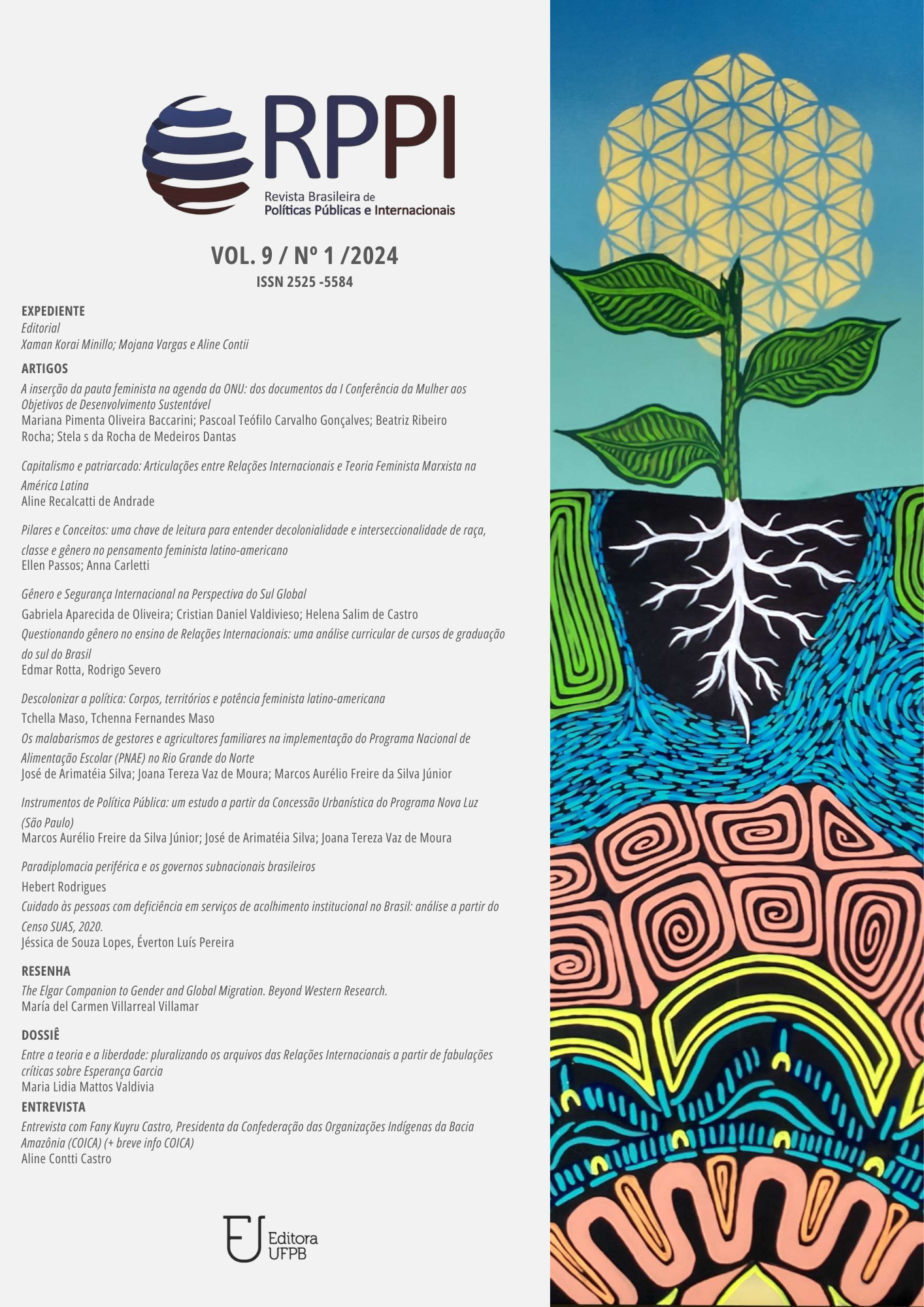Public Policy Instruments: a study focusing on Urban Concession in the Nova Luz Program (São Paulo)
DOI:
https://doi.org/10.22478/ufpb.2525-5584.2024v9n1.65287Keywords:
urban policy, requalification, instruments, urban concession, Luz neighborhood (São Paulo)Abstract
The article aims to analyze the institute of Urban Concession through Public Policy Instruments conceptual lenses, as well as the way in which it was implemented within the context of the Nova Luz Program, in the city of São Paulo. From a conceptual point of view, he analysis is carried out under the interpretation that Urban Concession is what is usually called an urban instrument and, at the same time, is formed by public policy instruments. Using the typology of public policy instruments proposed by Hood (1986), we conclude that the attempt to implement Urban Concession in São Paulo took place through an unbalanced set of instruments, mainly based on the legal authority of the municipality, which contributed to the failure of the initiative. We hope that, by shedding light on this particularly unsuccessful urban intervention project, the work can help public managers avoid the failure factors herein identified.
Downloads
Downloads
Published
Issue
Section
License
Copyright (c) 2024 Marcelo Ricardo Fernandes Roschel, Martin Jayo, Eduardo de Lima Caldas

This work is licensed under a Creative Commons Attribution 4.0 International License.
Autores que publicam nesta revista concordam com os seguintes termos:- Autores mantém os direitos autorais e concedem à revista o direito de primeira publicação, com o trabalho simultaneamente licenciado sob a Licença Creative Commons Attribution que permite o compartilhamento do trabalho com reconhecimento da autoria e publicação inicial nesta revista.
- Autores têm autorização para assumir contratos adicionais separadamente, para distribuição não-exclusiva da versão do trabalho publicada nesta revista (ex.: publicar em repositório institucional ou como capítulo de livro), com reconhecimento de autoria e publicação inicial nesta revista.
- Autores têm permissão e são estimulados a publicar e distribuir seu trabalho online (ex.: em repositórios institucionais ou na sua página pessoal) a qualquer ponto antes ou durante o processo editorial, já que isso pode gerar alterações produtivas, bem como aumentar o impacto e a citação do trabalho publicado (Veja O Efeito do Acesso Livre).




_.jpg)






.png)


.jpg)
_.png)
